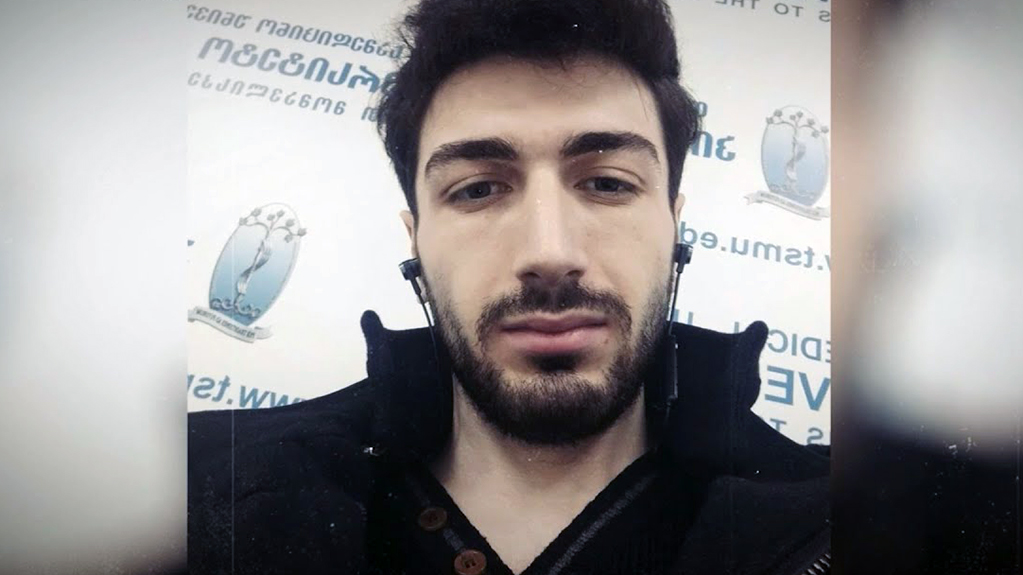A portrayal of the average Georgian youth in 2024
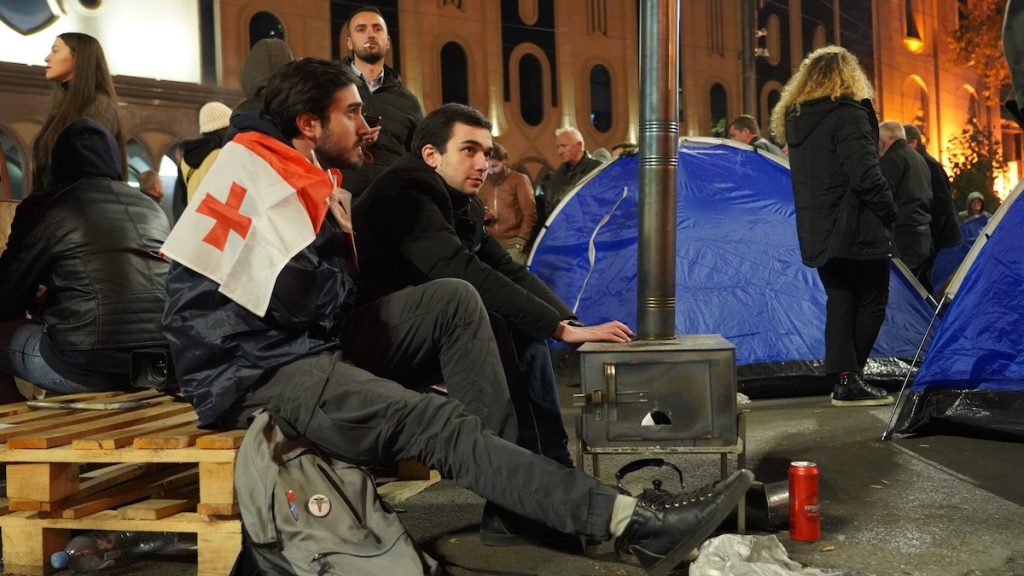
The Friedrich-Ebert Stiftung (FES) South Caucasus Regional Office has once again conducted a study among average Georgian youth aged 14-29 to explore their living situation and opinions. The results were quite interesting and can be found here.
In 2017, we portrayed an average Georgian youngster based on the similar 2016 study. While the questionnaires of the 2016 and 2023 studies don’t completely align, they still both touch upon the same core issues.
That’s why we decided to compare how or if the average Georgian young person has changed between 2016 and 2023. To do that, we decided to make an updated portrayal, and here’s what we have come up with.
The youth are mostly busy with either studying or working though relies on the parental support
● An average Georgian youngster is currently in some type of academia, vocational training, or employed (69%),
● He/she lives with his/her mother (64%) and probably his/her father (55%),
● He/she is financially supported by parents (46%).
● He/she gets along very well with his/her parents (58%).
● He/she has enough money for food, clothing, and shoes (65%).
● He/she thinks that the material status of their household is roughly the same compared to his/her community (70%) and the country (61%).
● Even though he/she has never been abroad (62%), he/she would like to go abroad to study and/or work (73%), ideally staying for 1-5 years (34%).
The situation seems to have improved somewhat since 2016.
At that time, 55% of Georgian youngsters believed they had sufficient funds for food, clothing, and shoes, indicating a 10% increase.
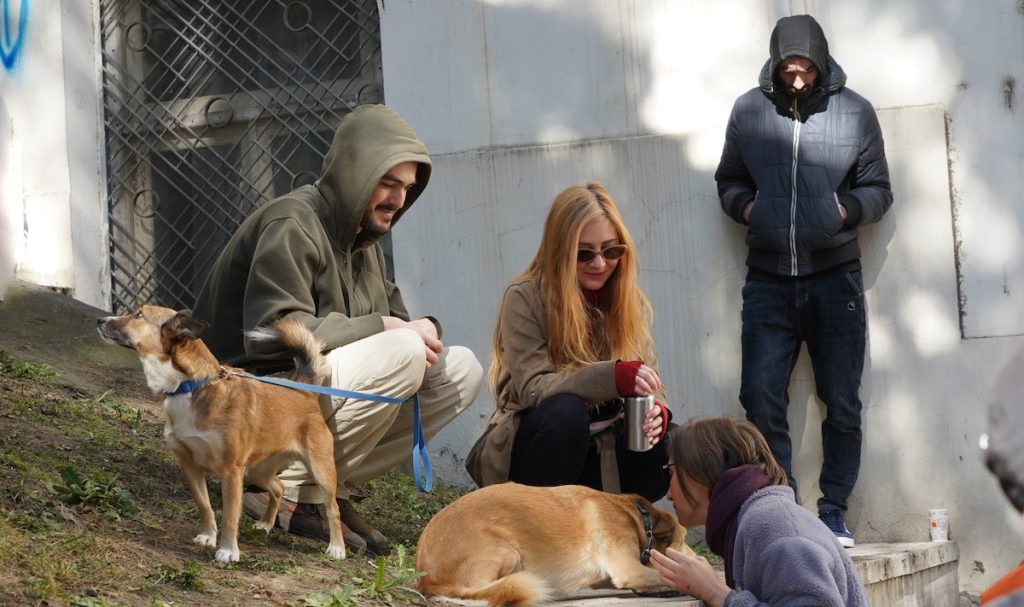
Quality of education vs having good acquaintances
In recent times, the average young Georgian is very or somewhat satisfied with the quality of education received at school – 72%.
In contrast, in 2016, the figure was only 52%.
The average youngster believes that the most important factor to get a job is education (94%), previous experience (89%), and education or work experience abroad (77%).
Comparatively, having good acquaintances was the most cited factor cited by the average Georgian teenager in 2016 (75%).
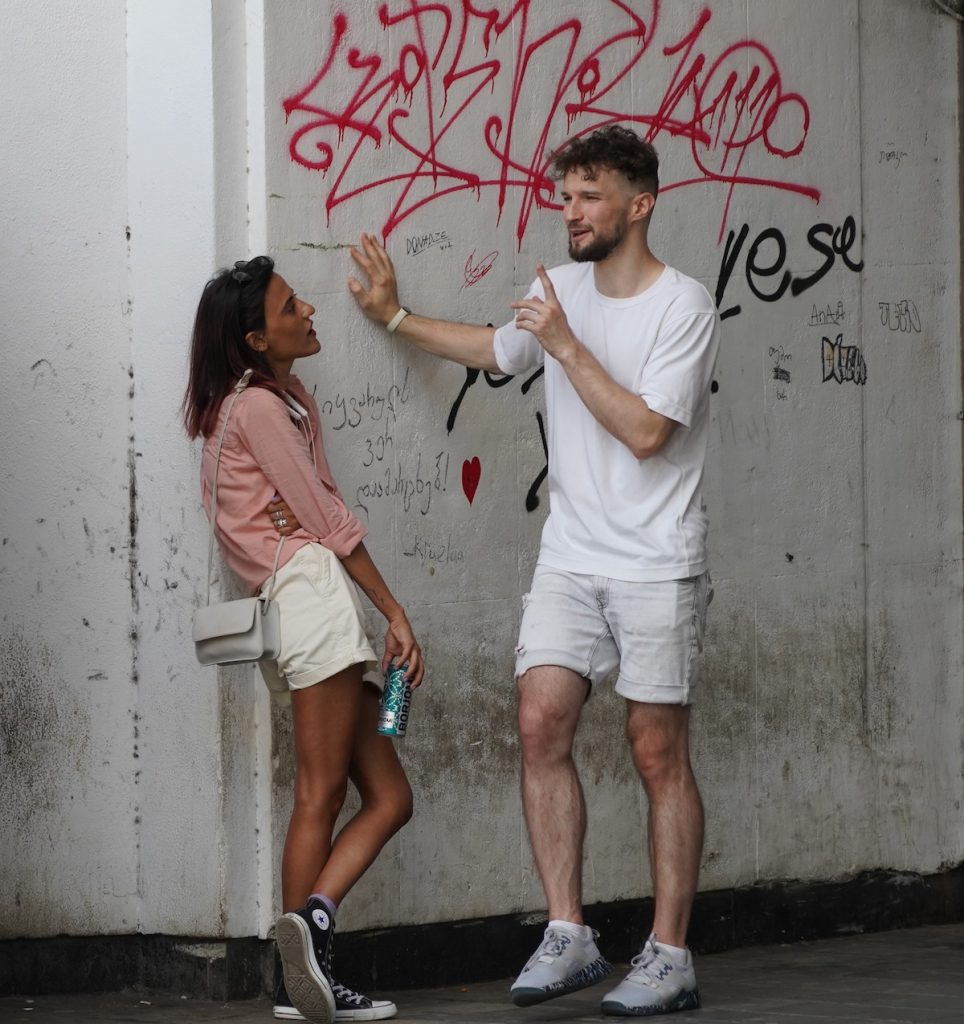
The majority of young people are not interested in participating in political activities
63% of the respondents has never participated in a civic or political activity like solving a settlement or neighborhood problem, expressing his/her opinion online, participating in volunteering or a civil society organization, or attending demonstrations or political functions.
Furthermore, 80% of the respondents are unwilling to assume a political role.
At the same time, he/she still thinks democracy is the best political system for Georgia (75%) and regards the current practice of politics as positive (44%).
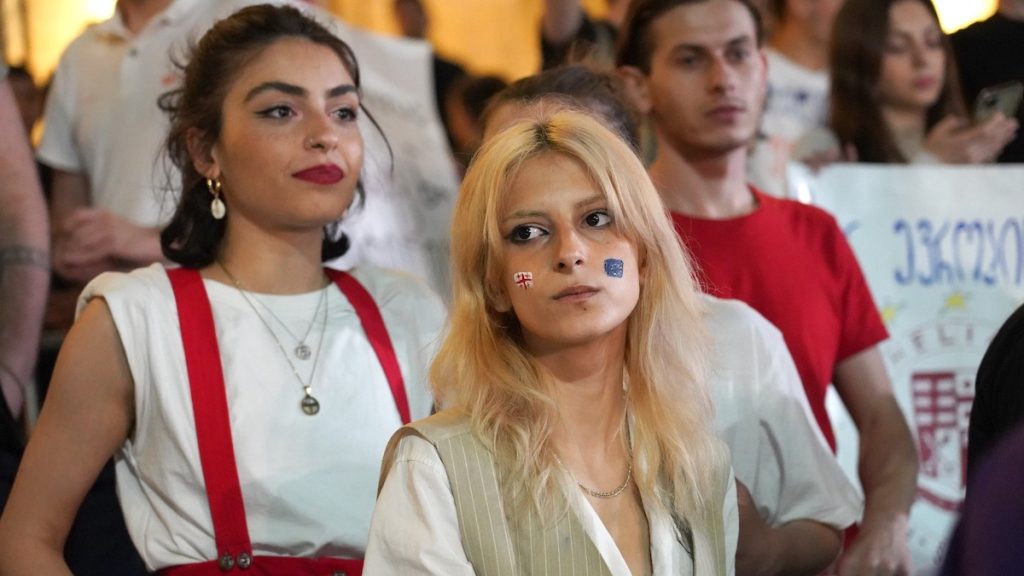
High trust in both the church and the army
An average Georgian youngster puts a lot of trust in the church/other religious institutions (67%).
He/she trusts the army even more (74%).
These percentages present a shift in trust between 2016 and 2023.
While the average Georgian youngster trusted the church most in 2016 with an overwhelming 81% and the army with 76%, the most trusted institution is now the army.
There is an increase in distrust towards political parties and the media
The institutions the average Georgian youngster puts the least trust in are:
- Political parties: In 2016, 74% expressed distrust toward them, and the figure has risen to 79% nowadays;
- Media: In 2016, 48% expressed distrust toward them, and 74% nowadays;
- Trade unions – from 51% in 2016 to 67% nowadays distrust;
- Distrust regarding the national government decreased from 71% in 2016 to 66% in 2023.
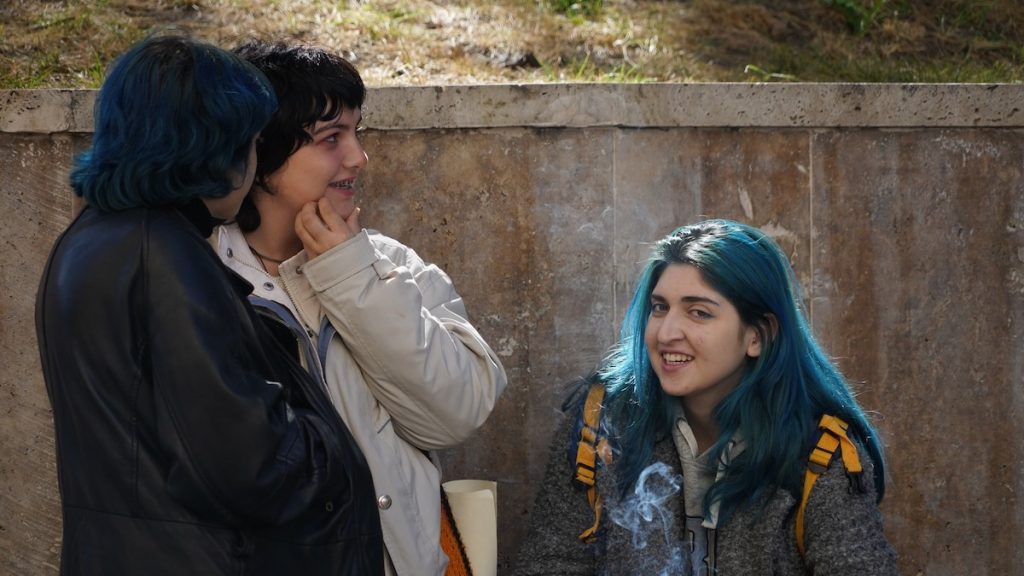
Who is considered unacceptable?
The average Georgian youngster rejects the most:
- Drug addicts (61%),
- Queer people (46%),
- And Russians (44%).
In comparison, in 2016, the average Georgian youngster felt less trust for:
- Ethnic minorities (46%).,
- People with different political views and/or religions (46%):
- LGBT people (46%).
In 2016 study, 75% of respondents claimed to feel very good or good about a Russian family moving in next door.
While this exact question was not reproduced in 2023, it still shows a big change in mindset considering 44% would now bar Russian individuals from entering the country.
Only 5% would accept Russians as neighbors and only 3% would accept them as friends or part of family.
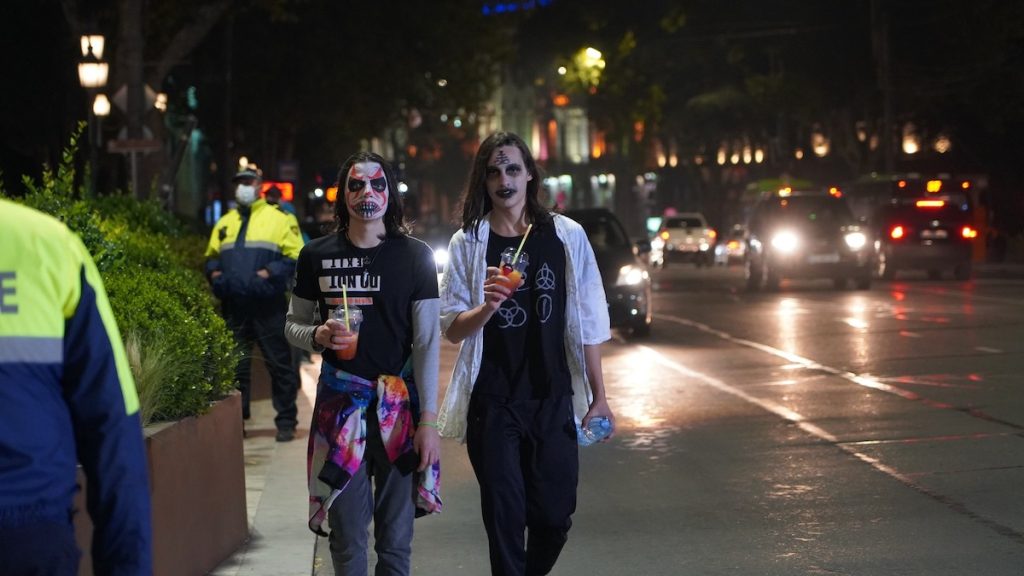
Sexual abstinence considered a value for both genders
In 2023, the average youngster thinks that sexual abstinence is a valuable concept for both genders (55%). In 2016, only 33% supported this concept.
In 2023, 11% considered it a psychological burden or outdated, compared to 25% in 2016.
Only 7% believe it is exclusively valuable for females, compared to 31% in 2016.
Unemployment and rising prices are named as the most important challenges for Georgia
When asked about climate change, he/she thinks it is a global emergency, but doesn’t consider it as one of the most pressing issues for Georgia – only 1% of Georgian youth think that. 48% believe climate change to be a natural process.
Georgia is a European country (62%), cooperation with Russia is a threat (82%)
He/she believes that the EU plays a positive role in Georgia (79%), as well as international organizations like the United Nations (75%), financial institutions like the World Bank (73%) and NATO (73%).
Cooperation with Russia is overwhelmingly (82%) considered to be a threat to Georgia’s statehood, national values, national security, and economic system.

Youngsters believe that life will become better in the near future
He/she believes that his/her family’s standard of living will improve in the next 5 years (77%).
He/she thinks that the countries’ standard of living will also increase in the next 5 years (59%).
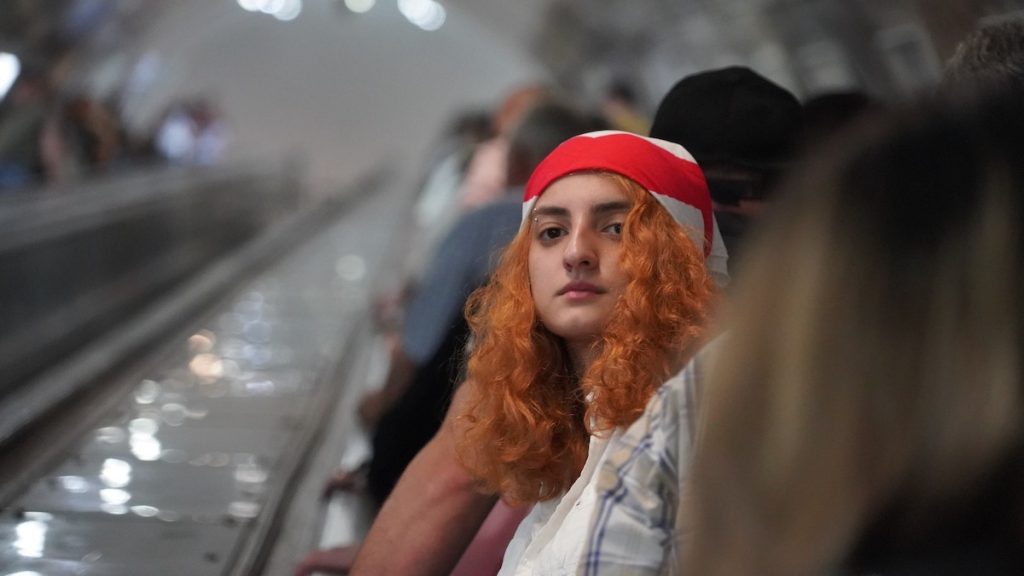
The study is based on the model of the Renowned Shell Youth Study which has been carried out in Germany as well as many other European countries since 1953. The methodology for the survey was created by the Analysis and Consulting Team (ACT) in compliance with Friedrich-Ebert Stiftung (FES) South Caucasus Office requirements.
In total, 1,200 completed face-to-face interviews and 24 focus group discussions were conducted throughout the country.


















